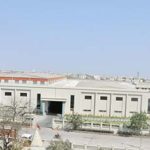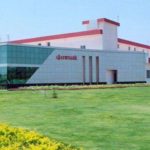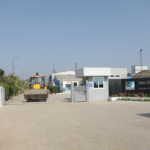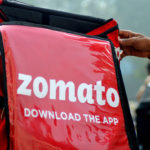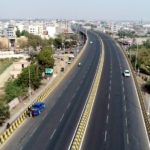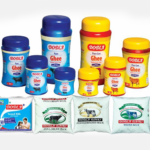The term DEMAT stands for dematerialization. A dematerialized account is an online account that holds all the securities like shares, bonds, FDs, Mutual Funds, exchange, traded funds, etc., of the individual in a dematerialized form.
Until the year 1996, all the traders and investors used to hold their security in the form of paper. After the invention of the internet and technological advancement, traders and investors started holding their securities in digital form. Once the internet became accessible to all people, the situation changed, and now, they do not need to keep their investments in paper.
What is a DEMAT account for NRIs in Suva, Fiji?
In simple words, a dematerialized account is an electronic account open with the purpose of holding all the securities like stock, shares, bonds, etc. of the individual in an electronic form.
Like a normal bank account that holds your money, a DEMAT account holds your securities. The shares and stocks of the individual at transferred electronically to the DEMAT account of the individual. The transition from paperwork to dematerialization in India started in 1996. In 1996 the depository act passed and allowed for the setting up of depositories like National Security Depository Limited(NSDL) and Central Depository Services Limited (CDSL) that will hold DEMAT accounts. Many people do not know that the National Stock Exchange was India’s first fully automatic stock exchange. National Stock Exchange officially started in 1994, and DEMAT share trading on National Stock Exchange started in 1996.
NRIs in Fiji
The great chief Lutunasobasoba, according to Fijian tradition, led his people across the oceans to the new territory of Fiji. Most experts think that humans entered the Pacific via the Malay Peninsula from Southeast Asia. Most researchers believe that people arrived in the Pacific via Southeast Asia’s Malay Peninsula. Long before Europeans came, Melanesians and Polynesians merged to develop a highly advanced society.
When the earliest Melanesians arrived 3,500 years ago, they brought a vast variety of food plants, the pig, and a kind of pottery known as Lapita clay with them. People who are skilled in navigation and canoe construction, as well as horticulturists, are commonly linked to that pottery.
Capital: Suva
Monetary unit: Fiji dollar
Languages: Fijian
Currency Exchange Rate:- 1 rs = 0.028 Fijian Dollar
Total area: 7,054 sq mi
Fiji is a South Pacific archipelago of islands. It borders the Koro Sea and is roughly 1,300 miles (2,100 kilometres) north of Auckland, New Zealand. The archipelago consists of 300 islands and 540 islets that span a 1,000,000-square-mile region (3,000,000 square km). Only around a hundred of the 300 islands are populated. Suva, the capital, situated on Viti Levu (“Great Fiji”), the largest island, on the southeast coast.
Land of Fiji
Fiji’s geologic history is complicated. The Fiji islands are mostly the result of volcanic activity, sedimentary deposits, and coral formations, and are built on a submerged substrate of ancient formations. Viti Levu is around 4,000 square miles (10,000 square kilometres) in size and makes up more than half of Fiji’s land area. A rugged separating range runs north to south, with numerous peaks exceeding 3,000 feet (900 metres), including Tomanivi (previously Mount Victoria), Fiji’s highest point at 4,344 feet (1,324 metres). The Rewa, Navua, Sigatoka (Singatoka), and Ba (Mba) river systems all have their headwaters in the central mountain range.
Economy of Fiji
Fiji’s economy is centred on tourism and agriculture, with the latter containing a significant subsistence industry dominated by indigenous Fijians. Subsistence farmers augment their income by growing copra, cocoa, kava, taro (also known as dalo), pineapples, cassava (manioc), bananas, or fishing. The commercial sector is mostly dependent on garment manufacturing and sugarcane production, both of which are primarily carried out by small-scale Indian farmers.
The economy also has a substantial service and light-industrial component that serves tiny neighbouring nations as well as Fiji, with businesses ranging from boatbuilding (particularly fishing boats and pleasure ships) to brewing and paint manufacturing.
Cultural life
Fiji’s multiculturalism contributes to the rich cultural heritage of the country. Many features of traditional Fijian culture have been preserved, including elaborate investiture, marriage, and other rites conducted for high-ranking chiefs. These festivities serve as a focal point for traditional crafts such as masi, or tapa fabric, which is manufactured from the bark of the paper mulberry; mat weaving; wood carving; and boat manufacturing. Yanggona (kava, prepared from the root of Piper methysticum) is consumed by Fijians and Indians alike, not just as part of major events but also in everyday life.
Fiji’s original settlers brought with them a broad variety of food plants, the pig, and a form of pottery known as Lapita ware when they arrived from the Melanesia islands at least 3,500 years ago. That pottery is usually connected with individuals who were skilled at navigation and canoe construction, as well as horticulturists. The Lapita culture was transferred from Fiji to Tonga and Samoa, where the first Polynesian cultures emerged.
Eligibility criteria to open a DEMAT account for NRIs in Suva, Fiji
Following are the eligibility criteria that an individual is strictly required to meet while opening a DEMAT account for NRIs in Suva, Fiji.
Age
You need to know that there is no restriction on age. There is no minimum age to invest in the Indian stock market, so there is no need to be 18 years old in order to open a DEMAT account. A minor and an adult are equally eligible to invest in stocks. After submitting the required documents, one can open a DEMAT account in a minor’s name through the parents or the guardian. Here you need to remember that the guardians will be the incharge of the account until the minor or children reach adulthood. Once the minor turns 18, the depository participant will send the advisory to the individual and obtain the Know Your Client (KYC) documents to transfer details to a new account.
Verification of PAN and KYC of NRIs in Suva, Fiji
A Permanent Account Number (PAN) card is a must-have thing that an individual should possess to open a DEMAT account. You need to submit a copy of your Permanent Account Number (PAN) card with Know Your Client (KYC) documents for opening or DEMAT account. The Know Your Client (KYC) process is shifting to the online platform that uses the Aadhaar card of the individual to verify the details.
How does a DEMAT account works for NRIs in Suva, Fiji?

DEMAT account holds all the security of the individual in electronic forms, so one cannot trade in the stock market without a DEMAT account. To use a DEMAT account as an NRIs in Suva, Fiji, you need to know how it works.
There are some basic things that you need to know in order to understand the working of DEMAT accounts: –
Central depository: – They are of two types: Central Depository Services Limited (CDSL) and National Securities Depository Limited (NSDL). These two depositories hold the stock account of the individuals for them.
Unique ID: – Every DEMAT account is allotted a unique ID for identification. The unique ID is necessary for transactions and helps the companies correctly identify the individual to credit shares into their account.
Depository Participants (DP): – Depository participants provide access to the individual stock account held by the central depository. Depository participants are also called brokers who act as intermediaries between the central depository and investor. Depository participants can be traditional banks, financial institutions, or discount brokers.
Portfolio holding: – Portfolio holding carries all the details of the account’s transaction, and those details are automatically updated every time a transaction happens.
Different types of DEMAT accounts for NRIs in Suva, Fiji
By having a broad understanding of different types of DEMAT accounts for NRIs in Suva, Fiji, you will be able to choose the ideal account for you. The DEMAT accounts are classified into three categories for NRIs in Suva, Fiji given below.
All three of them are comprehensively explained below: –
Regular DEMAT account for NRIs in Suva, Fiji
First is a regular DEMAT account which is needed for investors who reside within India. A regular DEMAT account is used by Indian resident investors and is ideal for those who deal with equity shares alone. In a regular DEMAT account, the shares that an individual buys are safely stored in the digital format, and the shares that the individual sells are taken from it. If you are planning to invest in the future and options, then you don’t need to have a regular DEMAT account because the future and options come with expiry dates; therefore, they don’t need to be stored.
Securities Exchange Board of India (SEBI) has recently introduced a new type of DEMAT account called the Basic Service DEMAT Account (BSDA). Basic Services DEMAT Account (BSDA) is quite similar to the regular DEMAT account, but there is one difference between the two. No maintenance charges are imposed if the individual is holding the Basic Services DEMAT Account (BSDA) within rupees 50,000. If the individual is holding between 50,000 to 2 lakh rupees, then there will be 100 rupees charged per annum. The Securities Exchange Board of India (SEBI) wanted to financially include and aid the investors who are untouched by the stock market, need to open their DEMAT account, and wish to participate in stock markets.
Repatriable DEMAT account for NRIs in Suva, Fiji
The second is the Repatriable DEMAT account for NRIs in Suva, Fiji. These types of accounts are used for non-resident Indians. A repatriable DEMAT account allows the individual to transfer their wealth abroad. The investor needs to link the Non-Resident External (NRE) bank account. Once an individual is entitled as a Non-Resident Indian (NRI), they must close their regular DEMAT account. After closing the previous regular DEMAT account, the individual can transfer the shares into a Non-Resident Ordinary (NRO) DEMAT account. In case you are willing to sell the shares, you must know that a restriction on repatriation comes into force. Following the restriction on repatriation, you are allowed to repatriate a maximum of one million USD in a calendar year (January to December).
Non-Repatriable DEMAT account for NRIs in Suva, Fiji
These are the second DEMAT account option available to the Non-Resident Indians (NRI) in Suva, Fiji. Non-Repatriable DEMAT accounts do not allow Non-Resident Indians (NRI) to transfer their funds abroad. Non-Resident Indian (NRI) investors willing to hold a non-Repatriable DEMAT account need to link their Non-Resident Ordinary (NRO) savings account with a DEMAT account. Before becoming an NRI, the individual with a regular DEMAT account can transfer to the non-Repatriable DEMAT account category. One can do this without losing shares or even requesting to open a new account.
Things to remember while opening a DEMAT account as an NRIs in Suva, Fiji
You should always keep the below-given things in mind while opening a DEMAT account as an NRIs in Suva, Fiji: –
Follow the prescribed rules of SEBI by NRIs in Suva, Fiji

To open a DEMAT account, then individual needs to select a SEBI registered intermediary that offers a two-in-one service. Two-in-one service means that it works both as a DEMAT account and trading account. Registered brokers at SEBI need to adhere to the prescribed rules and regulations.
Hire a broker or a Firm by NRIs in Suva, Fiji
The individual needs to select a broker or a firm, and the broker must respond to the demands on time. Always remember that in the stock market, time is everything. In the world of finance, time is money, so having a good broker is a very mandatory condition. A broker can change the game; either he can make you or break you.
Always do detailed research by NRIs in Suva, Fiji
You should always compare the rates of the brokerage companies and firms as the majority of brokerage or firms charge processing fees. In contrast, some brokerages impose zero fees on certain financial products. Besides, some firms or brokerages have certain financial products for zero brokerage.
How to open a DEMAT account as an NRIs in Suva, Fiji?
Opening a DEMAT account is a two-step process for NRIs in Suva, Fiji. After submitting the documents, the individual must fill out the application form.
Step one: Fill out the DEMAT account opening application form by an NRIs in Suva, Fiji
In the first step, the individual needs to fill out the form. First of all, download and print the DEMAT account opening form and enter all the necessary details in the respective columns.
Next, you must submit the account opening form and the necessary documents to your broker. You should also fill out an updated Know Your Client (KYC) form and submit your identity proof, address proof, and permanent account number with bank proof.
You need to mention your nominee in the DEMAT account opening form. In simple words, a nominee is a person who will become the incharge of your account and its assets if you suffer from any kind of miss happening.
After that, you will come across your Depository Participant (DP) agreement containing the details of the charges you will incur while holding your DEMAT account. The agreement will also contain:
The rules and regulations
Terms and conditions
The duties of the broker
Your rights as an investor
Besides this, you need to do in-person verification. The in-person verification is done to confirm that the details are correct and valid.
Lastly, once all formalities are completed, you will receive a beneficiary owner identity which is also called a unique client code. It is a unique account number that is used in all future transactions.
Step two: Fill out your Know Your Client (KYC) form by an NRIs in Suva, Fiji
In the second step, the individual is required to do Know Your Client (eKYC).
After the paper registration process, the individual needs to fill Know Your Client (KYC) document.
For the Know Your Client (KYC) form, the individual must have a soft copy of the Aadhaar letter as address proof. After that, the individual needs to fill in the basic details like email id and mobile number in order to receive OTP. Ensure that the mobile number you have given is linked to your Aadhaar card and is correct, as you will receive the OTP in the given mobile number.
After that, you need to enter your Permanent Account Number (PAN) for verification.
Now in the next tab, you need to do validation through the Aadhaar details.
Here you need to enter your Aadhaar number and other details like name, address, age, and gender. On some websites, all the other details will get prefilled once you enter your Aadhaar number.
Lastly, you are required to upload all your documents for account registration.
Documents required to open a DEMAT account by an NRIs in Suva, Fiji
To open a DEMAT account by an NRIs in Suva, Fiji, An individual must meet some mandatory requirements. Before opening the account, you should know the documents required to open a DEMAT account and the opening account charges. Following are the necessary documents for the DEMAT account: –
Proof of Identity
An individual can submit his Permanent Account Number (PAN) card, Aadhaar card, passport, driving license, voter identity card, National Rural Employment Guarantee Act (NREGA) job card, or any other document notified by the central government as identity proof. The identity proof should carry your photograph because it makes the identification easy.
Proof of Address
Passport
Aadhaar card
state-issued driving license
voter identity card
NREGA job card
any utility bill (like electricity bill, telephone bill, piped gas bill, water bill, etc., which is not more than two months old are acceptable as address proof.
Bank account statements or post office savings bank statements are also acceptable.
Lastly, you can submit any document issued by the government departments issued by a foreign jurisdiction. Any letters issued by the foreign embassy or Mission in India will also be accepted as proof of address.
Bank Proof
After submitting address and identity proof, the individual must generate proof of bank account. You need to submit proof of bank account that you are willing to connect with your account. For that, you can submit a cancel cheque with your name and send it to the broker along with the account opening form. If you are opening your DEMAT account online, you can upload the picture of the canceled cheque with the IFSC code of the bank to the online portal.
The bank proof you submit should carry your name, the IFSC code of the bank, and the MICR code. If you don’t have any cancel cheques, you can simply send a copy of the front page of your passbook as long as it contains all the above details.
Charges to open a DEMAT account for an NRIs in Suva, Fiji
While operating and opening a DEMAT account, there are multiple types of charges imposed on the individual, but primarily there are only three types of charges that are generally imposed for NRIs in Suva, Fiji; they are as follows: –
First is the annual maintenance fee. The annual maintenance fee is charged primarily on a yearly basis. It is levied in advance to keep the account working and provides services regularly as per the demand of the individual. The annual maintenance fee of a DEMAT account can vary from 300 to 800 rupees and may be charged even higher by traditional brokers.
Account opening charges are the second type of charges imposed on an individual while opening a DEMAT account. Different institutes have different charges. The account opening charges of an institute completely depend on its structure, overhead costs, and the service they provide to the individual. Generally, the discount brokers levy a low cost on DEMAT account opening compared to the other traditional banks and brokers.
Dematerialization fees are the fees imposed on some securities that the individual holds in physical form. If an individual holds some securities in physical form, the firm will charge the nominal fee for converting these physical securities into the DEMAT form. This is not a compulsory fee and is applicable only if the individual wants to convert their physical securities into DEMAT form.
The broker charges custodian fees to keep your security safe. The brokers and firms basically charge custodian fees for safe keeping your security. Generally, it is charged yearly depending on the number of assets held by the firm.
Lastly, transaction fee, generally, if you are opening a DEMAT account in a broker’s firm, then they will charge on each transaction. The transaction fee can vary depending on the value of the transaction and the number of stocks, and it is most likely to be a significant proportion of total charges. But nowadays, the scenario is changing, and some brokerages offer zero charges on delivery trades.


























